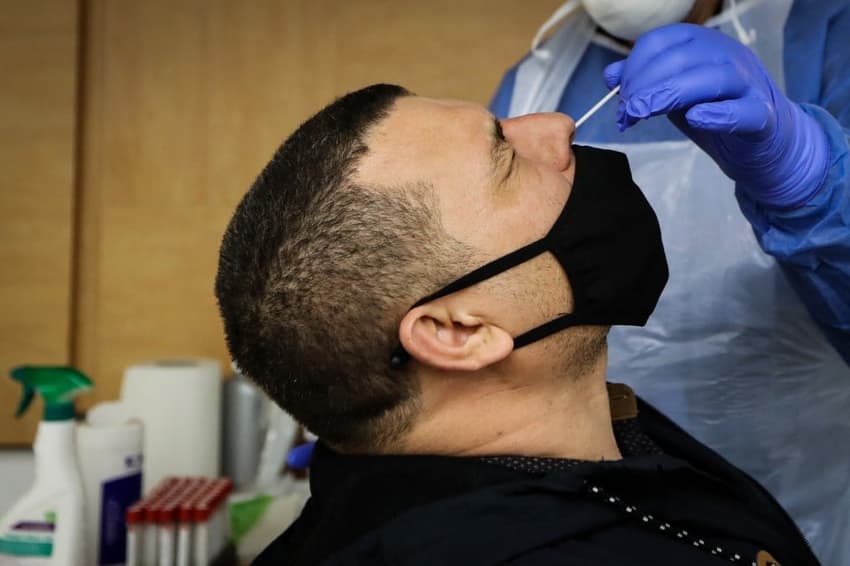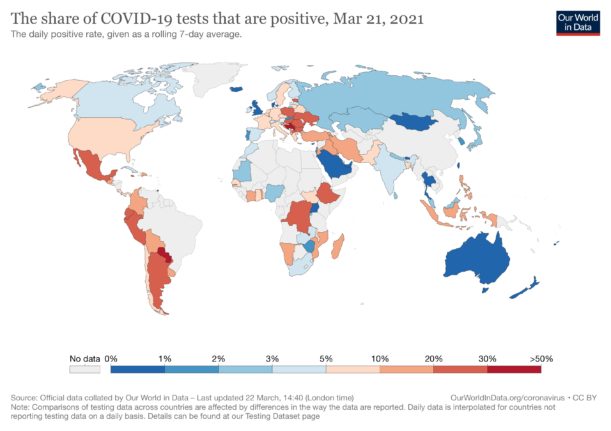Where can you get tested for Covid-19 in your Swiss canton for free?

Switzerland has implemented a broad testing strategy for free coronavirus screening throughout the country. This is how, and where, you can get tested near you.
The federal government is covering all costs of rapid antigen tests since March 15th.This means all residents of Switzerland can get tested free of charge, even if they have no coronavirus symptoms.
If you need a PCR test because you have Covid symptoms, or if you were ordered by a doctor to get screened, the test will be free as well.
However, if you request a PCR test to be able to travel, you will have to pay for it yourself, according to the Federal Office of Public Health.
READ MORE: EXPLAINED: How will Switzerland’s free coronavirus ‘self-testing’ scheme work?
If you need an antigen test, you can request it at a pharmacy or a public testing site in, or near, your place of residence. As things stand now, the latter is a most likely venue.
That’s because out of the country’s 1,800 pharmacies, only 276 currently have the necessary protective measures in place for testing.
This site shows which pharmacies in Switzerland perform tests and whether appointments are needed.
Where should you go if there is no testing pharmacy near you?
Ask your doctor if they perform antigen and / or PCR tests. Some do, so you may be able to get screened there. The same goes for your local hospital.
But generally, your best bet is a local coronavirus testing centre, as their capacity, days of operation and opening times are usually better and more convenient than those of private medical practices.
You can find a location near you on your canton’s website.
Note that most, if not all, will require you to register online before coming in for a test.
The government also promised that each resident will be entitled to five free ‘self tests’ every month to be used at home.
However, these tests are not yet available.
What is the testing situation in Switzerland right now?
In the past 14 days, over 423,470 people were tested; 5 percent were found to be positive.
That rate is lower than in neighbouring countries: 7.8 percent in France, and 6.8 in Italy and Germany.

Comments
See Also
The federal government is covering all costs of rapid antigen tests since March 15th.This means all residents of Switzerland can get tested free of charge, even if they have no coronavirus symptoms.
If you need a PCR test because you have Covid symptoms, or if you were ordered by a doctor to get screened, the test will be free as well.
However, if you request a PCR test to be able to travel, you will have to pay for it yourself, according to the Federal Office of Public Health.
READ MORE: EXPLAINED: How will Switzerland’s free coronavirus ‘self-testing’ scheme work?
If you need an antigen test, you can request it at a pharmacy or a public testing site in, or near, your place of residence. As things stand now, the latter is a most likely venue.
That’s because out of the country’s 1,800 pharmacies, only 276 currently have the necessary protective measures in place for testing.
This site shows which pharmacies in Switzerland perform tests and whether appointments are needed.
Where should you go if there is no testing pharmacy near you?
Ask your doctor if they perform antigen and / or PCR tests. Some do, so you may be able to get screened there. The same goes for your local hospital.
But generally, your best bet is a local coronavirus testing centre, as their capacity, days of operation and opening times are usually better and more convenient than those of private medical practices.
You can find a location near you on your canton’s website.
Note that most, if not all, will require you to register online before coming in for a test.
The government also promised that each resident will be entitled to five free ‘self tests’ every month to be used at home.
However, these tests are not yet available.
What is the testing situation in Switzerland right now?
In the past 14 days, over 423,470 people were tested; 5 percent were found to be positive.
That rate is lower than in neighbouring countries: 7.8 percent in France, and 6.8 in Italy and Germany.

Join the conversation in our comments section below. Share your own views and experience and if you have a question or suggestion for our journalists then email us at [email protected].
Please keep comments civil, constructive and on topic – and make sure to read our terms of use before getting involved.
Please log in here to leave a comment.